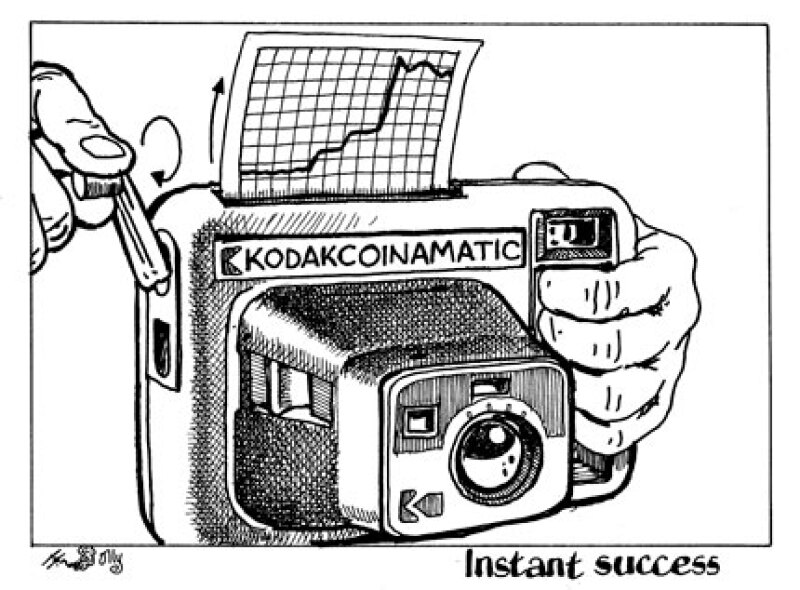
Kodak, recently most famous for regarding digital photography as a short-lived fad and going bankrupt in 2012, managed to triple its share price this week by announcing that it would launch a blockchain platform and cryptocurrency.
When start-ups raise funds with cryptocurrencies, they do so rather than taking money from venture capitalists. Kodak has opted to do so rather than participate in traditional primary capital markets by selling a bond or equity.
The regulatory water on cryptocurrencies is still a little muddy but is clearing swiftly. Investment banks must prepare to offer their clients assistance in raising funds through this method or risk losing them.
If a corporation is able to pivot its strategy to something that can be stretched to justify a cryptocurrency (which doesn’t seem difficult, given their astonishing profusion), why would it pay a bank to help it sell a bond or equity?
After all, with equity you dilute your holdings and with bonds you have to give the money back. With cryptocurrencies, you can give your team a great big bonus by keeping back 30% of your tokens.
Investment banks have a role to play in the sale of security tokens. It’s the same role they always play: connecting issuers with investors and advising on structuring and hedging.
Restrictions on selling only to qualified investors mean advertising on Twitter and Reddit may not be enough for firms trying to go it alone.
But the banks need to move quickly to acquire the necessary expertise and demonstrate their value in a market fast developing without them.

